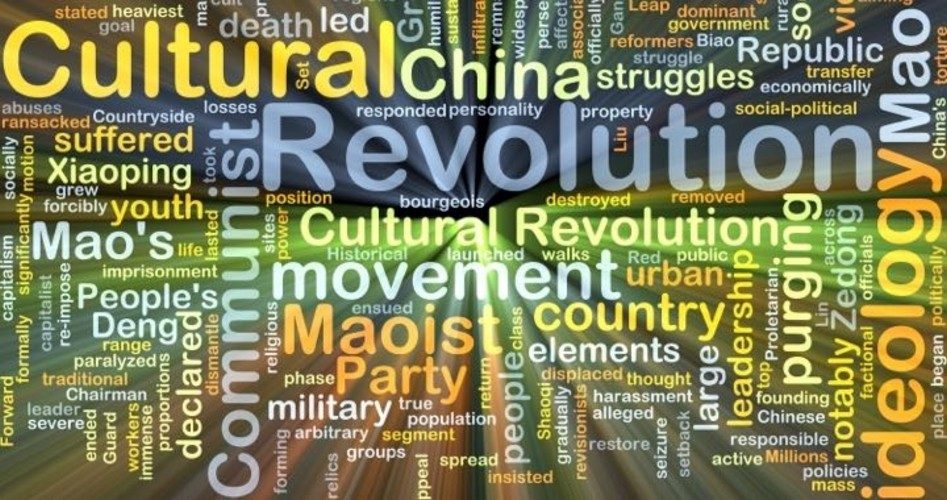
Could 1939’s Gone With the Wind be gone with the winds of change? Will 1946’s Song of the South soon sing its swan song? Both films have already been suppressed. It’s all part of the phenomenon whereby politically incorrect classic movies may soon join Confederate statues, Columbus Day, and a George Washington mural as victims of our cultural revolution.
As they’re slowly purged, politically correct films — replete with vulgarity, sexuality, and gratuitous violence approved by the Thought Police — take their place. As The Hill’s Christian Toto writes, “‘The Hustle,’ a gender-swap remake of 1988’s ‘Dirty Rotten Scoundrels,’ rails against the patriarchy between sight gags. ‘Avengers: Endgame’ shoehorns a minor gay character into the story as a super-[value]-signal. ‘Long Shot’ shows Seth Rogen apologizing for the United States bombing Japan to help end World War II.”
Yet to be nixed a work doesn’t have to be unfashionable, just associated with the “wrong” person; and as in past cultural revolutions (Mao’s China, Khmer Rouge Cambodia, etc.), the “wrong” person doesn’t actually have to be a bad person. For the slightest perceived blemish in a long career can justify airbrushing an individual from history.
For example, Toto mentions how the New York Yankees and Philadelphia Flyers purged from their programming legendary Kate Smith’s iconic rendition of “God Bless America,” and a statue of her has been torn down. Why? Because among her perhaps countless performances on radio, TV, and stage, she recorded two 1930s songs currently deemed Racist™. Never mind that she called for racial tolerance in a now forgotten 1945 radio address.
Then there’s the legendary Duke (no, not me). Snowflake critics want John Wayne’s name removed from the Orange County, California, airport because of race-oriented opinions he rendered in a 1971 Playboy interview.
Toto mentions other actors whose works or careers were scuttled by their own real or alleged misbehavior. He also points out that we’ve already seen recent victims of cultural-revolution purging, writing, “Two years ago, a Memphis theater nixed a screening of the 1939 classic ‘Gone with the Wind’ because of its ‘insensitive’ content.”
Additionally, “Disney’s Oscar-winning ‘Song of the South’ won’t be seen on the company’s forthcoming streaming platform,” Toto continues. “The 1946 film’s antiquated, and some say racist, portrayal of black life turned the movie into cultural poison. It’s never made it to home video, and that’s unlikely to change in the near future.”
Toto also wonders what’s next, citing as candidates early James Bond films (“sexism”), Blazing Saddles (racial and sexual humor), and Some Like it Hot (portrayal of men in drag). What’s for sure is that something will be next — and soon.
Of course, driving this isn’t genuine distaste for injustice or even “racism,” except insofar as leftists perhaps tendentiously define the latter (i.e., “Blacks cannot be racist!”). Just consider the fellow who said in a 1970s Playboy interview that a “black man should be killed if he’s messing with a white woman.” No, it wasn’t John Wayne, whose name may be removed from that airport.
It was Muhammad Ali — who, despite his unabashed bigotry, just recently had an airport (Louisville’s) named after him.
Such double standards indicate that, aside from the aim of destroying Western heritage, driving this cultural revolution isn’t mainly a desire to purge “white racism”; driving it, in part, is racism against whites.
Moreover, when cultural revolutionaries say something must go because it’s “insensitive,” we should ask: insensitive to what?
For example, the once-popular Amos ‘n’ Andy show (video clip below) was pulled from TV in 1966, under pressure from the NAACP, because it supposedly advanced racial stereotypes.
Of course, the show’s two main characters, George “Kingfish” Stevens and Andy Brown, reflected stereotypes. Yet did the show itself in its entirety? Note that most all the program’s characters were black, including its judges, policemen, and businessmen — and virtually all were articulate, intelligent, and dignified.
Moreover, while Kingfish and Andy were uneducated and doltish, so was Ed Norton on the Honeymooners, and his friend Ralph Kramden (the two were white and the main characters) also often played the buffoon. This is a comedy staple.
But then there’s moral blindness. The cultural revolutionaries say nothing about the “gangsta’” black image — with the baggy pants, tattoos, ghetto speaking style, and corrupt sense of morality — widely portrayed today in shows, movies, and music. Yet has this not become a stereotype?
And is this or Amos ‘n’ Andy more destructive to black kids? I laughed at Ed Norton, but never wanted to emulate him. Likewise, do you think black kids sat around in the late ‘50s saying, “Hey, I want to be like Kingfish!”?
The gangsta’ persona is a different story (as is James Bond), however. Kids emulate what’s portrayed as cool.
But the greatest danger the cultural revolution poses isn’t that we could lose Bond or Blazing Saddles, which don’t exactly portray great virtue. It’s that targeted also are works that may.
The Federalist reported in 2016 that, reflecting a wider trend, Yale University students were “protesting having to read Shakespeare and Chaucer in British literature classes because they are ‘white male authors.’” And some critics contend that a proposed California bill could have banned the Bible.
This is not surprising. With the standard being that anything even slightly incongruent with modern leftist values must be purged, what older work could possibly make the cut?
At the same time, the self-righteous, morally relativistic cultural revolutionaries have no problem with the vulgarity, sexuality, and mindless violence — the rampant vice — in today’s entertainment. In fact, they actually celebrate it.
This is yet another reason to dismiss their complaints with laughter. For that they’re passionate and persistent warrant no respect. After all, the Devil has his standards, too.
Image: kgtoh / iStock / Getty Images Plus



